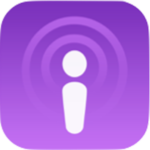01 Jun Access Answers: Episode 24
PODCAST
TRANSCRIPT
Episode 24: The Louisiana Department of Transportation and Development with Keli Pisciotta
Julia:
Welcome to another episode of Access Answers. As always, I’m your host, Julia, and we have Keli Pisciotta. She is the Project Manager for Access Sciences and the Project Manager of Records management for the Louisiana Department of Transportation and Development. Welcome, Keli.
Keli:
Hi. Nice to be here.
Julia:
How was your long weekend?
Keli:
Oh, it was great. The weather was awesome. We barbecued, so we had a good time.
Julia:
Oh, good. Are you nice and rested?
Keli:
Yes. I actually took Friday off as well, so I had a long weekend.
Julia:
Yeah, that’s nice. Okay, so for our audience just to get started, can you let us know a little bit about your background and how you got to Access Sciences and Louisiana DOTD.
Keli:
I started out as a programmer, developer and then I moved into a Project Manager role and then a PMO type person. I was looking for a change, and I saw an ad for Access Sciences that looked interesting and I applied. I’m so glad that I did. I’ve been really enjoying my work here at the Louisiana Department of Transportation and Development with my Access Sciences family. We have a great team here with Records Management and we’re just enjoying it. I have a team of six, and it’s a great team.
Julia:
What was it? Back in, I want to say January or February, I got to come meet all of you guys, and it was just the best time.
Keli:
Yes, our group is fun. We have a lot of fun. We have some team building sessions that we do, and there’s just no friction with the group. We stay busy, and we have fun while we’re doing it. So we do a lot of records management for DOTD. Lately with our new implementation of FileNet we have been gaining a lot more work. We’ve been getting a lot more boxes in and dealing with a lot more users and getting a lot more excitement. So, it’s been great.
Julia:
That’s awesome. So, you’re referencing the FileNet project, and I just want to let our audience know that we have a case study and I think even a blog out there about the FileNet project. But can you give us a little bit of background on that? I know it was very successful, and we’re all very excited about it, all over Access Sciences.
Keli:
We had another Access Sciences team that actually did the implementation, but they worked simultaneously with my team. We had a developer and an analyst on my team as well, and we worked with our scanning technicians. As the process went through, we updated the taxonomy, which is basically where the records fall and when they have to be disposed of. So we made sure that that was all in line. We met with all of the sections at Louisiana Department of Transportation and Development and got to meet everyone and make sure that the forms that we were sending had all the information that they needed to be able to pull the records back up. We did training sessions. A member of my team, Natal, did this great kickoff meeting where we had everyone come into the auditorium and we had little stations for people, and she had a theme that it was kind of like the race car theme, the pit stops.
Everyone really got into that. It helped people not only learn where the documentation was. They reiterated the date that we were going live, made sure they didn’t have any questions. We had a demo station for them to learn how to do the search if they had missed the training. We did recorded sessions. And as we went through that process, we went live and there were a few little hiccups. We worked with the team and we got those addressed. We are already at the point where we’re improving the process, which is-
Julia:
Oh, that’s awesome.
Keli:
…a lot quicker than where we would. Normally people are still fixing bumps, but at this point we’ve already had several enhancement releases, which has been really exciting.
Julia:
Well, that’s awesome. What kind of enhancement releases?
Keli:
One, we have where we can search the project number across different groups. As opposed to just pulling it from your section, you can just input the project number and it will pull against all the different groups that have entered something with that project number. You can get a real 360 degree view of your project. We’ve also implemented something where when you submit a document with your records, you fill out your information, attach your form, and send it. We have an option where you can be emailed once it gets uploaded into file, and then it will also send you a link to where that document is so that you don’t have to go and search for it. So there are a lot of different enhancements, but those are some of the big highlighted ones that we’ve done so far, and we have a lot more coming.
Julia:
Oh, that’s exciting.
Keli:
It is.
Julia:
What has the feedback been like from employees all over DOTD?
Keli:
It’s a mixture. Mostly it’s positive, but we’ve had some that were a little slower to come on board. We’ve had one that wanted to actually QC their documents as well as when we did it just side by side to make sure that she got a comfort level. After probably about, she did a couple of weeks, and then she says, “Okay, you’ve convinced me. I’m on board.” So we’ve gotten … some people like that, took a little slower to get on board, but they’re saying, “We like it. It’s easier to search.”
Julia:
We call them creatures of habit.
Keli:
So, it’s been good.
Julia:
You’ve credited a lot, and I, team marketing, has so many great things to say about your team. Can you tell us a little bit about who’s on your team? What it was like forming that team?
Keli:
Well, when I first came on board, it was a little different because it was a new area for me. I relied heavily on the team members to teach me the process. I came in and I actually sat with each one. I have a person that works in the warehouse as well as in the house that keeps track of the records management of the paper copies. We also have an analyst that works with the taxonomy to make sure that every record gets loaded into the proper form so that it gets disposed of correctly. We have another senior analyst that works heavily with liaison, with the FileNet, and with the sections, and does communication and training. We have two scanning technicians, and we have a developer.
So, when I came on board, like I said, it was a learning process for me as well. I got to know each person and in doing that, I got to learn their strengths. I’ve gotten to challenge people and change some of the roles around just a little bit to make it more efficient. We occasionally have team building sessions. One time we had one where I asked everybody their favorite song, their favorite movie, something that nobody would know about, send in a picture. So I did this little slideshow and we had to vote who you thought it was.
Julia:
Oh, that’s funny.
Keli:
We would play the song. We really learned a lot about each other. A lot of people wanted the slideshow afterwards so that they can go and listen to or read the book or watch the movie that somebody else liked. So, they got to know each other personally as well.
Julia:
It’s important.
Keli:
But through the process, we’re learning each other’s strengths and we’re doing my method is to teach everybody the overall picture. It’s really been helpful with coming on board with a new system, everybody getting involved and learning the entire process, and able to offer more recommendations and get more input from the entire team. It’s been great.
Julia:
Right. Back to the favorite songs, were there any that surprised you?
Keli:
There were a lot of surprises. I can’t remember offhand the exact songs, but I know there were some that were very surprising, that took us off guard.
Julia:
That’s a fun exercise. I want to do that because I think I would think that I knew what people’s songs were, but then you never know what people listen to when they get in the car in their commute.
Keli:
We have, our developer seems kind of mellow, but he had a hard rock song. So, it was kind of like, oh, wow, okay, yeah.
Julia:
That’s his outlet. That’s how he is, so mellow.
Keli:
That’s right.
Access Answers is owned and operated by Access Sciences. We design, implement, and operate integrated solutions to manage information, unlocking its full value throughout its life cycle. We do so by applying creative minds, diverse experiences, and a passion for problem solving. If you’re interested in partnering with Access Sciences, send us an email at info@accesssciences.com.
Julia:
Another thing I love is that the DOTD team isn’t just close in of itself, but you guys are also very close to our other Louisiana teams.
Keli:
We have one in particular, the DEQ team. We get a lot of feedback with them. If we have questions on, if they’ve had anything with some of their retention schedule, we’ll reach out to their person over there or with development. Occasionally, we’ll go over there for their team meetings. I’ll bring one member of my team and go to their weekly status meeting and just hear what they’re doing. They do the same. Sometimes they come to our team meeting. They’ll bring one person from their side. We occasionally have get togethers. We haven’t had so many since COVID, but we’re hoping to pick that back up and do some team building where we’re all together and just socializing. We get together for like the Houston Walk. We did that. We get to group together here and we walk together. So we combine teams as well for that as well.
Julia:
What time of the year is that again? Is that October? I want to say it’s sometime in the fall, right?
Keli:
I think it is. I think it is.
Julia:
Yeah, I think so. And I look forward to every year, you guys, send me pictures from your walks and you guys look like you’re having the best time.
Keli:
It’s pretty scenery around here. We walk around the lakes and they have a lot of oak trees. It’s really pretty to walk and shady on our side.
Julia:
That’s great. So if the team in the Houston building did that, they would be walking just around other office buildings. So you guys definitely have the better option to go out and walk during the work day.
Keli:
Right. Occasionally we have to watch because with the lakes, you have snakes come up. One time we were walking past a tree that had six snakes curled up around it.
Julia:
Oh, no.
Keli:
So we have to be careful for that. But other than that, it’s a really pretty walk.
Julia:
Other than the deadly animals.
Keli:
That’s right.
Julia:
So even a little bit more background for our audience. Can you tell us a little bit about the partnership between both DEQ and DOTD and how those came to be for Access Sciences?
Keli:
DEQ had a long outstanding contract over there with Access Sciences. We had a need where someone from DEQ moved over to DOTD. Then they said, well, we might want to look at that. So they looked at the system that DEQ had, and we did an assessment here at DOTD at the time, Access Sciences came over, saw what their needs were, took an inventory of the warehouse and made some recommendations and came in. It’s not exactly the same. There are some slight differences, but for the most part, it’s the same. We have something different with microfilm that DEQ does not have. We also have an offsite storage, which they do not have. But other than that, they made the recommendations. For the most part, the jobs, the functions are similar because we take care of their managing their records, and make sure they’re adhering to the state archives regulations there. and they get disposed of properly. But we do have a few differences as well.
Julia:
One thing that I enjoyed when I came to visit are the pictures of your offsite storage where you guys really, really went in and cleaned it up.
Keli:
I wasn’t here when they first went in there. I can only imagine. It’s one of those old army huts, not weather controlled, climate controlled. So they went in and did a lot of work. I just know from recent, since I’ve been here, there’s been a lot of cleanup as far as getting the boxes up off the floor, getting them organized. Because occasionally when it rains, you want to make sure the records don’t get wet. But we have a good inventory system that we’ve created to keep track. We know exactly where every box is, what shelf, what warehouse it’s in. And so, if someone’s looking for a certain paper copy of a record, we can put our hands on it pretty quickly and just drive. It’s just right up the street. And we just go get the box and bring it back.
Julia:
I’m surprised it’s right off the street. Because I remember the pictures, it was just this huge, huge building.
Keli:
It’s just the next exit down.
Julia:
Okay, so that’s very convenient.
Keli:
It is convenient. But we’ve trying to hopefully get a new storage area that is climate controlled. But for now we have three … we use two pretty much. One complete warehouse is ours. Then the other one, we kind of share some of the resources with other groups from DOTD. The other one is pretty much full capacity. But we have to leave space for the pallets when we do disposals and things like that.
Julia:
Speaking of climate control, how’s the weather in Louisiana right now? We’re kind of baking in Texas.
Keli:
It is very hot already for being just now turning to getting ready to be June, but it’s already going to be hot. So it’s going to be a very hot summer.
Julia:
Oh, sure.
Keli:
Our person that works at the warehouse, we pretty much let him go in the mornings and then he’ll pretty much come back to the office and do some things at the office as far as getting boxes ready to go to the warehouse. It’s not a hundred percent staying at the warehouse because he would bake.
Julia:
Yeah, definitely. Well, Keli, thank you so, so much for sitting down with me today, and just helping our audience know a little bit more about what we do in Louisiana.
Keli:
All right. Thank you.
Julia:
All right. Thank you. Talk to you soon.
Keli:
Bye.





